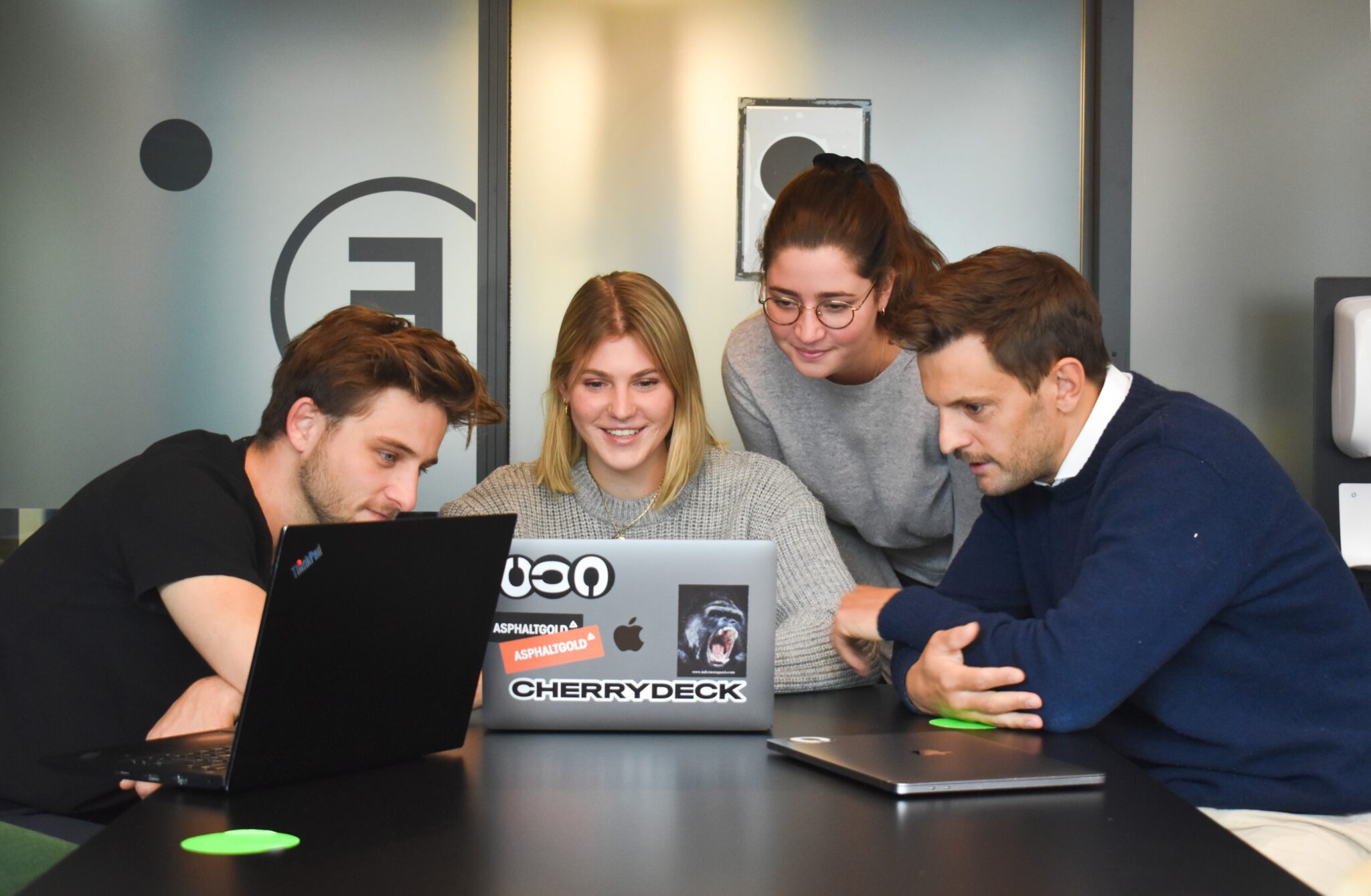The first time I met my team in real life, I finally felt confident in my ability to lead them online. That may seem like an odd statement to make, but it’s the strange reality many leaders, whose companies experienced great employee growth during the pandemic, have had to face.
As a startup, our company received seed funding in the winter of 2020 when hiring remotely wasn’t optional, it was necessary. Bringing teams together in person was more than just a logistical challenge, it was a health hazard.
So, when we were finally able to physically gather, it became apparent that, more than vision alignment or quarterly goals, what we needed was to get to know each other as people.
Our company is built on the premise of fostering a paid, online community. But in order to run it successfully, we needed to create camaraderie amongst our own team.
As more companies embrace hybrid work scenarios, here are three tips I’ve learned from leading a community-first business on how to effectively build relationships both remotely and in person.
Work Shouldn’t Be on the Agenda for IRL Meetings
As a remote-first startup, we work—a lot. What we don’t get to do is develop our relationships with coworkers through physical proximity. So, when we get together in real life, we make it a point to have little to no agenda other than getting to know each other as people.

This may seem like a waste of time for a startup, but there’s no greater investment than building camaraderie and trust with your team. A recent report by the Trust Edge Leadership Institute showed the main reason people want to work for a company is trust in their leadership—more than company culture or even compensation.
Not all of us can control the agenda of in-person meetings, but we can make it a priority to get to know our coworkers better. It’s the same principle we use in building community for our members. In-person events lead to deeper connections, and when trust is strengthened in real life, people engage more online.
Check In On, Not Up On Your Team
In the midst of a work conversation with a colleague recently, I noticed something was off. He was answering my question, but there was a vacancy in his voice. When I asked if something was wrong, he informed me he’d just received some daunting news about a family friend. He then proceeded to compartmentalize the tragedy and continue with the meeting. It was only when I acknowledged how hard the news must have been for him to digest and suggested he take some time to process it, that he agreed to reschedule and take care of himself first.

One of the first principles in community building is ensuring you stop to check on how your members are feeling. If the sentiment isn’t good or members are going through a challenge, you offer support. Taking the time to check in on colleagues has become even more important lately as many of us are facing challenging work-from-home environments and other stressors created by the global pandemic.
Unfortunately, many leaders still default to checking up on employees, reprimanding their mistakes rather than seeking to understand what might have caused them in the first place. MIT Sloan Management Review recently found that feeling respected and being supported by leaders were the most powerful predictors of a healthy work culture. Even if you’re not in a leadership role, checking in on your coworkers strengthens relationships and contributes to better outcomes for all.
A Silent Community Is Dangerous—Especially at Work
The people we interact with won’t always share our views, but it’s critical that we create safe spaces to co-exist, especially at work. When we feel the need to hide parts of ourselves, we scale back and disengage—this is dangerous in a community and equally damaging in a workplace.
At work, we’re faced with making tough decisions that don’t always appease the majority. This is particularly hard in hybrid environments where there’s less opportunity to communicate through body language or physical energy. What I’ve learned from leading both a community and a team is, in moments of conflict, it’s important to share your “why.”
When you share the intent and rationale behind your decisions, your coworkers are less likely to get defensive, even if they disagree with you. This creates space for healthy disagreement and reinforces that all voices are valued, even when views don’t align with our own.
How we work has forever changed. So, it shouldn’t come as a surprise that the process for building relationships with our coworkers must also change. When we take a community-first approach to building relationships with colleagues, barriers become far easier to break down.
Dejan Pralica is the cofounder and CEO of SoleSavy, one of the world’s largest paid sneaker communities. Pralica is also the cofounder of KicksDeals.







